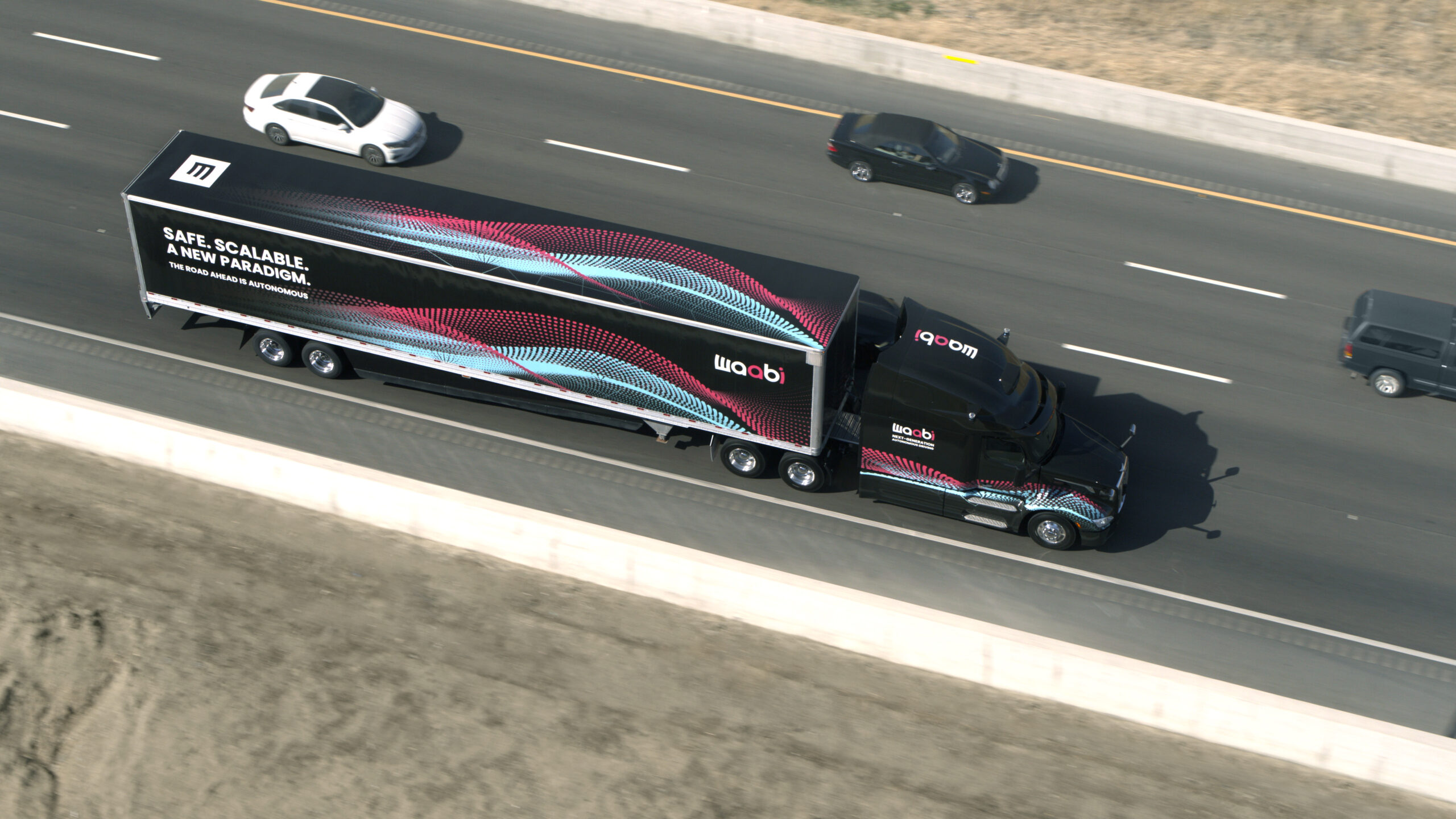Member Spotlight: Waabi
Welcome to our Member Spotlight series where we explore the diverse companies developing autonomous vehicles for a safer, more mobile and connected world. We spoke with Waabi about their autonomous trucking technology -- the Waabi Driver -- and the company's AI-first approach to autonomous solutions.

How Is Your Company Advancing Autonomous Vehicles?
Waabi is unlocking the next generation of self-driving technology through our AI first approach. Traditional approaches to developing this technology rely on hand-engineered systems and real-world testing, which is expensive and isn’t scalable. At Waabi, we replace real-world testing with generative AI-powered simulation and have developed a foundational AI model purpose-built for the physical world. This approach results in a safer, more affordable, and scalable solution.
Waabi’s core offering is the Waabi Driver, the industry’s most advanced autonomous solution for trucking. Waabi Driver is safe, scalable, highly flexible, and purpose-built for OEM integration on the manufacturing line. It includes two components: an advanced virtual driver as software, and autonomous sensors and compute as a hardware kit.
The Waabi Driver learns within our revolutionary simulator, Waabi World: the most scalable, highest fidelity closed-loop simulator to ever exist. In Waabi World, generative AI reconstructs worlds automatically from data and creates infinite scenarios, exposing the Waabi Driver to the vast diversity of experiences needed to hone its driving skills, including common scenarios and safety-critical edge cases — automatically and at scale.
What's an Example Of A Challenge Your Company Is Trying To Solve For?
Over 2 million lives worldwide are lost each year in automotive accidents. Although humans have an incredible capacity to learn how to drive, they’re vulnerable to distractions on the road and fatigue.
Meanwhile, the ongoing trucking crisis has a critical impact on our supply chains and economies. The industry is grappling with a driver shortage of nearly 80,000 (expected to exceed 160,000 by 2031), difficult working conditions, and exploding freight volumes that are straining supply chains beyond their capacity.
Automation is the only solution to this logistics crisis, supplementing the work that thousands of human truck drivers will continue to do moving freight on regional and local routes. Other approaches require resource-intensive manual tuning and do not generalize to handle all situations that we might encounter on the road. They also require exposing the vehicle to millions of miles in the real world in order to understand what set of problems might need to be solved next.
At Waabi, we’re full believers in the power of AI to achieve commercial deployment. An AI-first approach is safe, cost effective, flexible, faster to develop, and scalable.
Why Is The Work Of Your Company Important?
Waabi's self-driving technology will save lives, alleviate supply chain strains, and reduce transportation emissions.
Safer driving can prevent the loss of over 3,000 lives each day on roadways worldwide. Autonomous vehicles are less vulnerable to distractions and fatigue, and Waabi’s solution can safely navigate both common driving scenarios and rare, safety-critical encounters. Waabi’s AI-first approach offers a safer and more reliable solution because we only put trucks on the road that have been tested and trained to safely handle these safety-critical scenarios in our generative AI simulator.
The truck driver shortage will persist until a transformational solution is introduced. Waabi’s approach is initially focused on the hub-to-hub middle mile of trucking, with the goal to enhance safety, increase efficiency and asset utilization, and free up skilled drivers to work local hauls — improving their quality of life and creating better jobs that allow them to spend more time with their families.
Longer term, Waabi’s self-driving solution will reduce harmful gas and chemical emissions by cutting truck idling time at rest stops and customer facilities. It will also decrease transportation emissions by planning more efficient routes, reducing hard braking incidents and generally operating a truck in a more efficient manner.
What Policy Solutions Are Most Important For Your Company?
Waabi knows that our technology is not going to exist in a silo. The Waabi Driver will be used within a well-established freight transportation network, one filled with many unique and long-standing rules and regulations. And just like the trucking industry as a whole, autonomous technology cannot be subject to a patchwork of state-based rules. States play a key role in helping us test and build initial AV technology safely, but there is also a clear role the federal government will play in helping us take the next step. We need both FMCSA and NHTSA to complete their ongoing rulemakings and get us the regulatory certainty necessary for long-haul trucking operations in the US.
We have all also seen how generative AI (GPT4, etc) has changed the landscape of technology and public policy. But it’s important governments understand distinct uses of AI. Our AI technology operates in the physical world, in an already highly regulated space where our technology’s performance is going to be clearly defined (is it improving, or not?). Government should make sure to avoid rolling AVs into a set of rules meant to govern social media platforms and other AI-powered technologies unrelated to AVs.
Why Is Your Company A Member Of AVIA?
As we all know, autonomy has the power to transform the trucking landscape, ease supply chain strains, and create a future with safer roads. Waabi's breakthrough AI-first approach is a major turning point for the industry and the key to bringing this technology to commercial deployment. Being a member of AVIA has enabled us at Waabi to continue to raise the bar for transparency in this industry as we commercialize our solution. We are committed to openness and understand the key role that collaborative partnerships play in autonomous truck development. Through AVIA, we remain laser focused on developing the most effective, scalable, and safe self-driving technology.